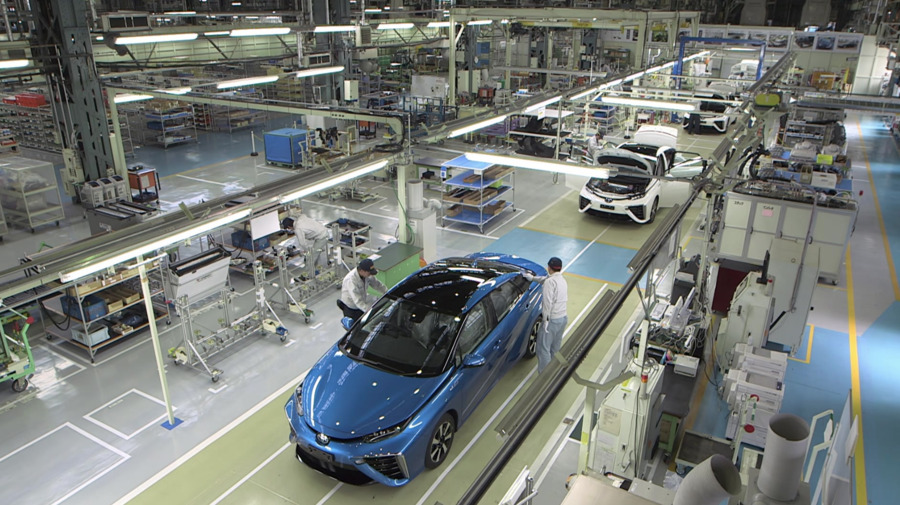The Korean automobile industry’s transformation over the past several decades is a remarkable narrative of evolution from basic assembly operations to a dominant force in the global automotive market. This evolution highlights South Korea’s strategic implementation of industrial policies, innovation, and an unwavering commitment to manufacturing and design excellence, propelling it to the forefront of the automotive world.
Birth and Early Development
The genesis of the Korean automobile industry dates back to 1955 with the production of the first Korean car, the Sibal, by Shinjin Motor Company. Initially, the industry was heavily reliant on importing parts and simple assembly operations, with mass production only commencing in 1960. The 1960s marked a period of significant foundational development for the industry. In 1962, pivotal companies such as Kyeongseong Precision Industry (later renamed Kia Industry) began assembling cars in partnership with Mazda by 1964. That same year, Ha Dong-Hwan Automobile Industry Co., which later transformed into SsangYong Motor Company, and Saenara Automobile, supported by Nissan Motor Co., established the first modern assembly facilities in Korea. These developments set the stage for further growth, with Asia Motors Company entering the scene in 1965, followed by the founding of Hyundai Motor Company in 1968, which initially collaborated with Ford Motor Company.
Government Intervention and Industry Consolidation
In 1974, the South Korean government decisively intervened in the automotive industry, selecting Shinju, Asia Motors, Hyundai Motors, and Kia to develop into automotive giants. This strategic decision was supported by political backing and access to favorable financing, which were vital for technological and capacity expansion. During this period, significant consolidation activities reshaped the industry: Shinju was transformed into Daewoo Motors through a joint venture, while Asia Motors was integrated into Kia. This consolidation was aimed at strengthening the industry’s global competitiveness by fostering larger, more technologically advanced companies.

Hyundai’s Breakthrough and International Expansion
Hyundai’s successful entry into the American market in the 1980s with the Excel model marked a pivotal moment for the Korean automobile industry on the international stage. This model’s success in such a competitive market underscored the potential of Korean automobiles globally. Following the end of military rule in South Korea, and as wages began to rise, undermining the competitive advantage of low-cost labor, Korean firms aggressively pursued international expansion. They established manufacturing facilities in various developing countries including Russia, Poland, Romania, Ukraine, and Uzbekistan, and opened numerous sales and service offices worldwide, enhancing their global footprint and market reach.
Current Auto Manufacturers and Market Influence
Today, South Korea’s automobile landscape is rich and varied, with major players that have established strong global presences:
- Hyundai Motor Group includes well-known subsidiaries like Hyundai Motor Company, which offers popular models such as the Sonata and Tucson, and Genesis Motors, its luxury division.
- Kia Motors is celebrated for its diverse range of vehicles including the Sorento and Sportage, and it also oversees subsidiaries like Kia Defense and KG Mobility.
- Renault Korea Motors, formerly GM Korea, continues to be a significant force in both the passenger and commercial vehicle sectors.
- Daewoo Bus and Doosan Group specialize in buses and construction equipment, respectively.
- KR Motors remains focused on motorcycle manufacturing, diversifying the automotive offerings from the country.

Global Market Share and Competitive Positioning
South Korea has solidified its status as a major player in the global automotive industry. Renowned brands such as Hyundai, Kia, and Genesis are celebrated for their cutting-edge design, superior quality, and exceptional value. These brands have made significant inroads into crucial markets across North America, Europe, and beyond, driven by a focused strategy on meeting customer needs, leveraging advanced technology, and executing effective marketing campaigns.
Experience Korean Automotive Excellence with Al Mizan Car Rental
In Dubai, visitors can experience the pinnacle of Korean car manufacturing by offering the latest models for hire. From the reliable Kia Sportage 2023 for AED 175 per day, to the elegant Kia K5 GT Line 2021 for AED 1,125 per week, budget rent a car offers the perfect blend of style, comfort and performance. The commitment to quality service provides a personalized customer experience, making it the preferred choice for those looking to explore Dubai in a high-quality vehicle.
The journey of the Korean automotive industry from humble beginnings to becoming a global automotive market leader is a testament to the resilience, innovation and commitment to excellence of Korean manufacturers. As the industry continues to evolve, it will introduce increasingly innovative, environmentally friendly and technologically advanced vehicles, shaping the future of transport around the world.

Skateboarder, ninja, band member, International Swiss style practitioner and proud pixelpusher. Acting at the crossroads of modernism and intellectual purity to develop visual solutions that inform and persuade. I’m fueled by craft beer, hip-hop and tortilla chips.



